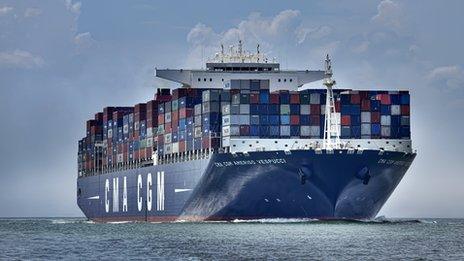Quagga mussel: 'Dangerous' mollusc found near Heathrow Airport
- Published
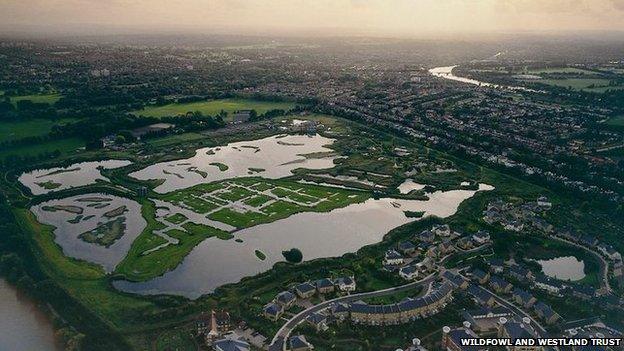
The Wildfowl & Wetland Trust's London Wetland Centre, downstream from Wraysbury, could be "devastated" by the mussel, the Trust says
A species of mussel which is threatening to block water supplies to a US city has been found in the UK.
Quagga mussels have been discovered at Wraysbury reservoir, near Heathrow Airport, the Wildfowl and Wetland Trust (WWT) said.
The molluscs form large colonies on hard surfaces and can block pipes and cause flooding, the trust said.
The Department for Environment, Food and Rural Affairs said it would take action to tackle the threat.
Some scientists say the mussel poses the maximum risk to the UK environment of any non-native species.
The 4cm (1.5in) bivalves originated in Ukraine and spread across Europe as new canals opened, a WWT spokesman said. They were introduced to the US by ships discharging their ballast in the Great Lakes.

Quagga mussels
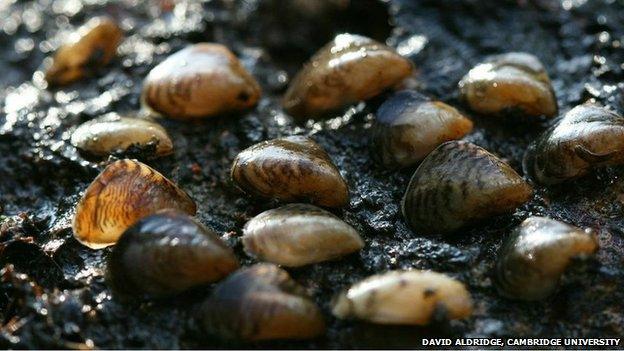
The species originates from an area around the Black and Caspian seas
Quagga mussels feed on different varieties of algae
There is no effective eradication method once it has been established in a reservoir
The quagga mussel can be hard to distinguish from the zebra mussel, which is already widespread in England and Wales
Quagga and zebra mussels have spread to 29 states, external in the USA
They are found in the Great Lakes and the Mississippi river basin as well as in artificial channels including in the Chicago area
Sources: Environment Agency and the National Wildlife Federation

The species is flourishing in Lake Mead, external, formed by the Hoover dam, and engineers are working to stop them colonising the dam's turbines and blocking the pipes which supply water to Las Vegas, the spokesman said.
Earlier this year a group of scientists at the Centre for Ecology and Hydrology, external (CEH) identified the quagga mussel as the single greatest threat to the UK's wildlife of any alien species.
Dr Helen Roy, one of the scientists involved in the research, said that, after looking at hundreds of species from all over the world, the quagga mussel was the most likely to arrive and establish itself in the UK and pose a danger to biodversity there.
Sarah Chare, from the Environment Agency, said the quagga mussel affected water quality as well as clogging up pipes.
The Department for Environment, Food and Rural Affairs (Defra) said it would be working to reduce the risks of the quagga mussels spreading any further.
A spokesman said: "It is important that we take action to address the threats posed by invasive non-native species.
"Users of our waterways can help with this by checking their equipment and keeping it clean and dry."
A Wildfowl and Wetlands Trust spokesman said the trusts's London Wetland Centre, downstream from Wraysbury "is the sort of place [where] they'll wreak havoc with the wildlife, if left unchecked".
Jeff Knott, from the WWT, said: "These tiny mussels can be devastating but look so innocuous.
"Quagga mussels are likely to indirectly cause suffering and death for hundreds of thousands of native animals, fish and plants and cost millions of pounds in tax and water bills to protect drinking water supplies."
- Published14 September 2014
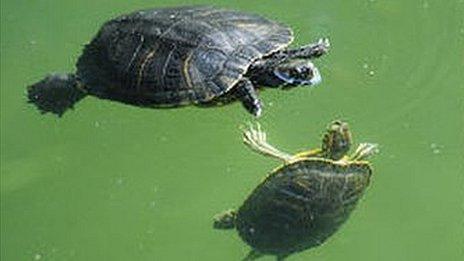
- Published5 September 2013
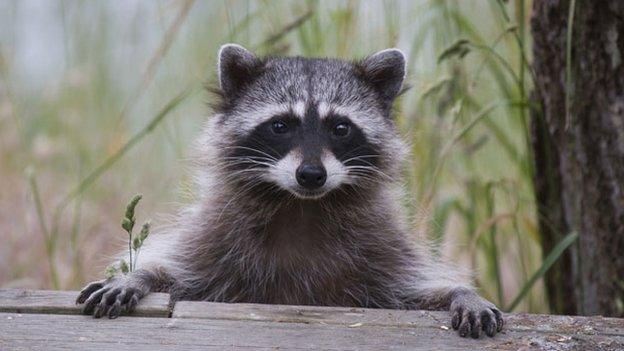
- Published16 June 2014
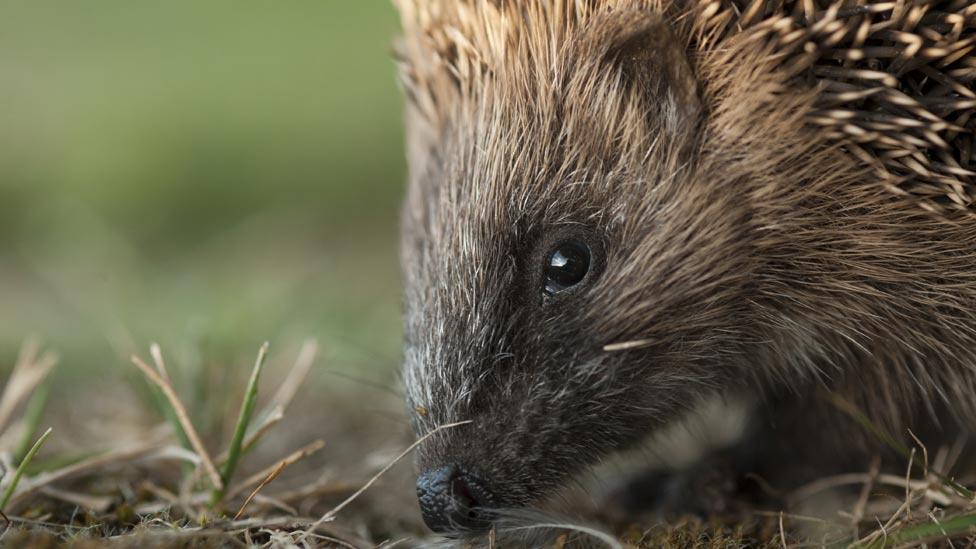
- Published5 May 2013
